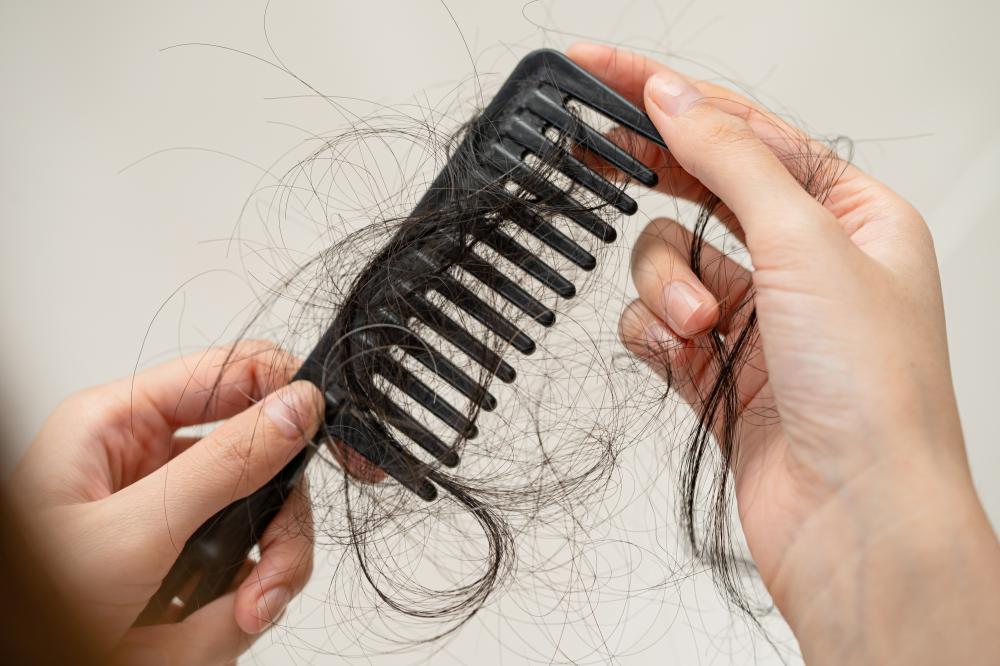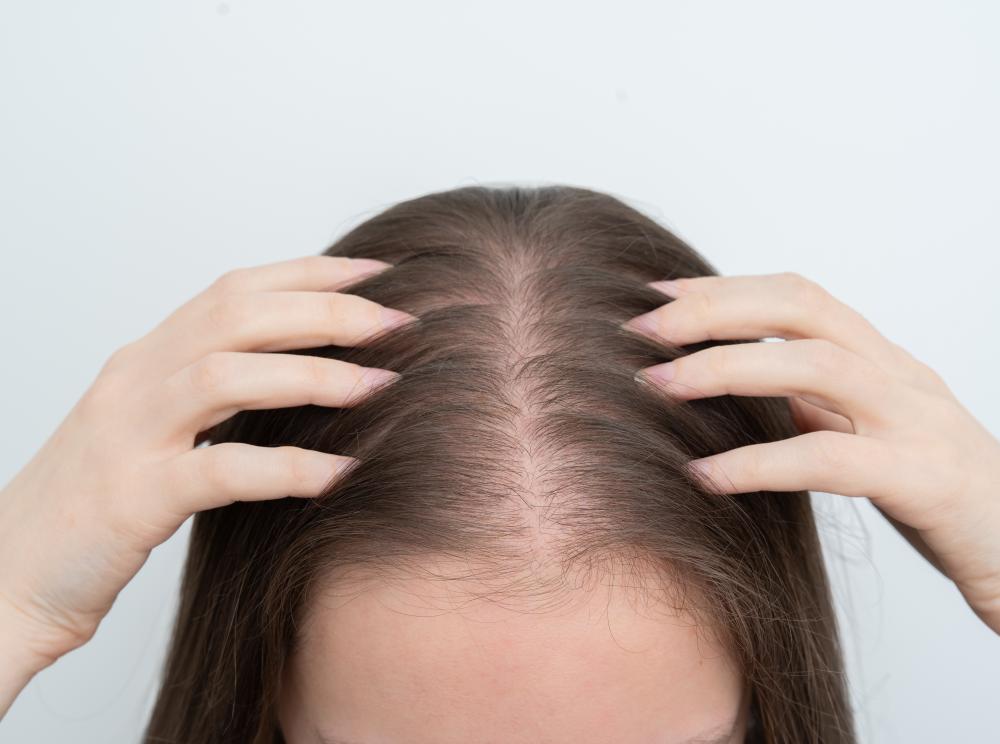Exploring Cancer Hair Regrowth Treatments
For many, facing cancer treatment can be one of the most challenging experiences life throws our way. Yet, one often overlooked consequence of this journey is hair loss. Fortunately, for those looking for options in Cancer hair regrowth Melbourne FL, there are a range of treatments available that can help restore not only hair but confidence, too. As a seasoned professional with over 20 years in the field of dermatology at Indigo Dermatology, I have witnessed how advances in technology have revolutionized hair regrowth treatments.
One of the most promising treatments for cancer-related hair loss is Platelet-Rich Plasma (PRP) therapy. This method employs the patient’s own blood, concentrating the platelets and injecting them into the scalp. A cascade of growth factors is then initiated, promoting hair follicle activity and encouraging regeneration. Depending on the individual, PRP treatments are usually scheduled every 4-6 weeks, with noticeable improvements often seen within a few months.
Additionally, low-level laser therapy (LLLT) presents another effective option. This non-invasive treatment utilizes laser light to stimulate hair follicles and increase circulation, fostering an ideal environment for hair regrowth. Many patients in Melbourne, FL, opt for this treatment as it can be conveniently administered at home with specialized laser caps or combs.
The Importance of Expert Guidance
When it comes to Cancer hair regrowth Melbourne FL, seeking expert guidance is crucial. With my years of experience, I can confidently say that personalized care plans yield the best results. At Indigo Dermatology, we carefully evaluate each patient’s medical history, current health status, and treatment preferences to create a customized strategy.
For instance, nutritional support plays a significant role in effective hair regrowth. Patients are often advised to maintain a diet rich in essential vitamins and minerals such as zinc and biotin, which support hair health. Given the demands of post-treatment recovery, expert dietary recommendations can accelerate the hair regrowth process.
Furthermore, addressing the emotional aspects of hair loss is an essential part of the journey. Many of our patients benefit from counseling services that help them cope with the psychological impact of hair loss after cancer treatment. This holistic approach ensures we not only treat hair loss superficially but also support our patients’ mental well-being.
Challenges in Cancer Hair Regrowth: What to Expect?
What challenges might you encounter when pursuing Cancer hair regrowth Melbourne FL? While each individual’s journey is unique, there are common hurdles that many face. One significant challenge is managing expectations. It’s essential to remember that hair regrowth is a gradual process, and while progress varies from person to person, patience is key.
A common question we receive is about the time frame for visible regrowth. Typically, patients begin to notice new hair growth within three to six months post-treatment. However, full results may take up to a year, depending on the individual and the treatment methods used. Adopting a steady and consistent treatment regimen can enhance outcomes.
Another challenge involves navigating the variety of available treatment options. Seeking a thorough consultation with a specialist in Cancer hair regrowth Melbourne FL can provide clarity and ensure you choose the best path forward for your unique situation. Our patients often find that clear communication and a strong partnership between them and their medical team lead to the most satisfactory results.
Steps to Effective Hair Regrowth
To achieve optimal results, adhering to a well-structured plan is vital. Here are five key steps:
- Consultation: Start with a consultation at a reputable clinic like Indigo Dermatology. An expert assessment helps tailor treatments to your specific needs.
- Treatment Selection: Choose appropriate therapies such as PRP, LLLT, or topical solutions based on expert recommendations.
- Consistent Schedule: Follow the recommended treatment schedule diligently. Most therapies require regular sessions to be effective.
- Nutritional Support: Incorporate a balanced diet rich in essential nutrients to facilitate hair health.
- Emotional Support: Engage in counseling or support groups to help manage the emotional journey of hair regrowth.
What Qualifies as a Cancer Hair Regrowth Emergency?
An emergency in Cancer hair regrowth Melbourne FL refers to sudden, severe reactions to treatments or unexpected complications that require immediate medical attention. While hair regrowth treatments are generally safe, it’s crucial to monitor for adverse reactions.
If you experience significant scalp irritation, unusual hair loss patterns, or signs of infection post-treatment, seek medical advice promptly. At Indigo Dermatology, our dedicated staff is available to address concerns swiftly, ensuring that patient safety remains paramount.
- Severe itching or redness
- Unexpected hair loss acceleration
- Signs of infection, such as persistent swelling or pus
What are the most effective treatments for hair regrowth after cancer, particularly in Melbourne, FL?
In Melbourne, FL, there are several promising treatments for cancer-related hair loss. At Indigo Dermatology, we often recommend Platelet-Rich Plasma (PRP) therapy as a leading option. PRP uses the patient’s own blood to concentrate platelets, which are then injected into the scalp. This process stimulates hair follicle activity and encourages regeneration. Many patients notice improvements within a few months. Another popular choice is low-level laser therapy (LLLT), which uses laser light to stimulate hair growth. The convenience of using laser caps at home makes it a favored option for many. Remember, selecting the right treatment is crucial, so consulting with a specialist who can tailor a plan to your needs is key. What personal experiences have you had with these treatments, or are there others you’re curious about?
Why is expert guidance crucial in the hair regrowth journey after cancer treatment?
Expert guidance in the hair regrowth journey post-cancer treatment is vital because each case is unique. At Indigo Dermatology, we prioritize personalized care plans that take into account an individual’s medical history, health status, and preferences. This ensures the most effective and safe results. Beyond the technical treatments, experts can provide nutritional advice, recommending diets rich in zinc and biotin to support hair health. Additionally, dealing with the emotional aspects of hair loss is essential. Counseling services can help patients cope with the psychological impact, providing a holistic approach to hair regrowth. Have you considered how a personalized approach might differ from general advice you’ve encountered?
What challenges can patients face during cancer hair regrowth, and how can they be managed?
Patients undergoing hair regrowth after cancer treatment often face several challenges. The most common hurdle is managing expectations. It’s important to remember that hair regrowth is a gradual process. Visible changes might start in three to six months, but full results can take up to a year. Patience and consistency are crucial. Another challenge is navigating the variety of treatment options available. A thorough consultation with specialists, like those at Indigo Dermatology, can provide clarity and help choose the best path forward. Building a strong partnership with your medical team can enhance the journey. Do you have specific concerns about this process that we can address together?
What are the key steps to achieve effective hair regrowth after cancer treatment?
Achieving effective hair regrowth post-cancer treatment involves several important steps. Initially, a consultation with an expert, such as those at Indigo Dermatology, helps tailor the treatment plan to specific needs. Selecting appropriate therapies like PRP or LLLT based on expert recommendations is the next step. Consistency in following the treatment schedule is crucial for success. Nutritional support through a balanced diet rich in essential nutrients like zinc and biotin can facilitate hair health. Lastly, addressing the emotional journey through counseling or support groups can provide holistic support. Have you identified which of these steps might be most challenging for you to incorporate into your routine?
What qualifies as a hair regrowth emergency after cancer treatments?
While hair regrowth treatments are generally safe, emergencies can occur when there are severe reactions or unexpected complications. At Indigo Dermatology, we advise that if you experience significant scalp irritation, unusual patterns of hair loss, or signs of infection such as persistent swelling or pus, it’s crucial to seek medical advice immediately. Our dedicated staff is always ready to address these concerns promptly. Awareness and timely response to these signs can prevent more serious problems. Have you encountered any unexpected reactions during your treatment that raised concerns?
How important is nutritional support in the hair regrowth process after cancer treatment?
Nutritional support plays a significant role in the hair regrowth process post-cancer treatment. At Indigo Dermatology, we often recommend diets that are rich in essential vitamins and minerals like zinc, biotin, and iron, which are crucial for maintaining healthy hair. Proper nutrition not only supports hair regrowth but also aids in overall recovery. Consuming a balanced diet can enhance the effectiveness of treatments like PRP and LLLT. It’s a combined effort of internal and external care that makes a real difference. Have you noticed any changes in your hair health when altering your diet?
Why is emotional support important during the hair regrowth journey after cancer treatment?
The emotional impact of hair loss after cancer treatment can be significant, and addressing this is crucial for a holistic recovery. At Indigo Dermatology, we emphasize the importance of counseling services and support groups that can provide the necessary emotional support. These services help patients cope with changes in their appearance and restore confidence gradually. Emotional well-being can directly influence the success of physical treatments, making it an essential part of the journey. Have you sought or considered seeking any emotional support during your hair regrowth process?

